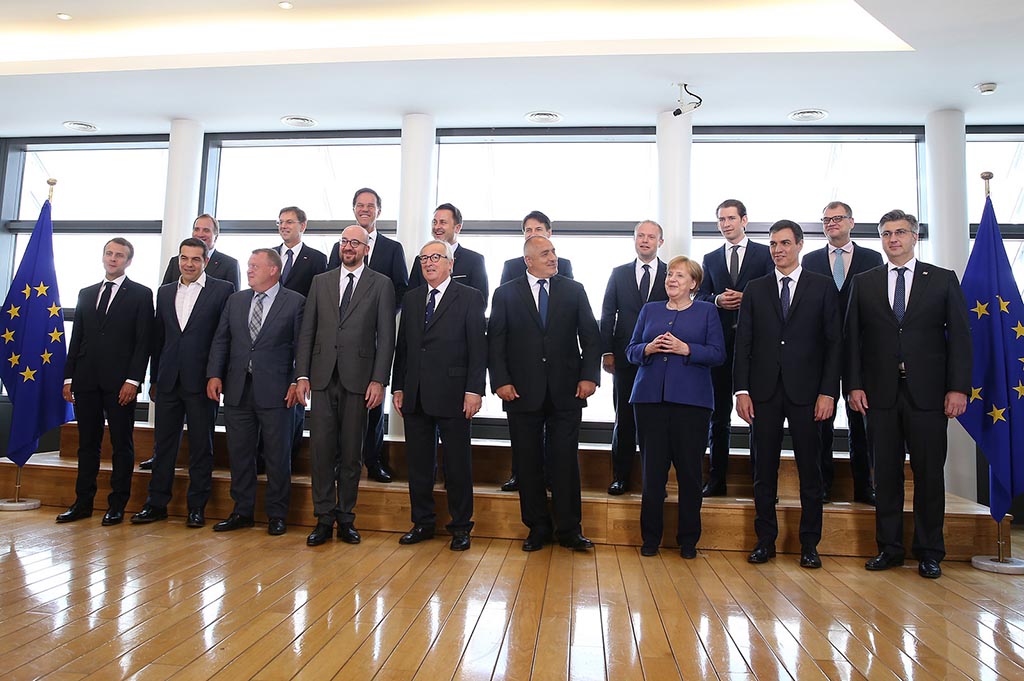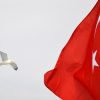
The EU’s problems stem not only from within but also from without. What the governments of non-member countries do has an impact on the range of ‘clusters’ into which the Union is fracturing, divisions that are already more complex than North-South, East-West or lenders-borrowers. It is not the cause, but certainly a catalyst of these differences and has a marked centrifugal effect.
The factor that is most fracturing the Union is the attitude towards economic immigration and the arrival of refugees, because an ever-greater number of Europeans are forming to the view that it affects their national identity. The current debate in Europe has a great deal to do with identity and taints everything, as evident in the run-up to the European Council meeting that in a few days’ time is due to debate the future to which the EU aspires. These human influxes stem from armed conflicts, often poorly handled by Europe, such as the civil war in Syria –Turkish cooperation in reducing the flow of refugees towards the EU is proving crucial– and the collapse of Libya. There is also the greatest income inequality in the world: the one separating the Mediterranean’s northern and southern shores. What happens outside the EU thus clearly affects what takes place within it, and the way the EU reacts –and there have been several different reactions as seen at the mini pre-summit on Sunday in Brussels– will determine the nature of what it becomes. It should also be said that migratory flows within the EU, such as Poles going to the UK, also catalysed the identity-based pro-Brexit vote in rural areas.
The UK is not part of the monetary union, but it did influence the EU with an attitude that was more open on trade and more closed on budgetary matters and policies involving solidarity. Many member states took refuge behind London in this respect. Brexit has orphaned them, leaving them bereft of a leadership that has since been taken up by the Netherlands, at the head of a group of 12 countries, including the Nordic and Baltic states, which oppose more spending, more resources for economic and social convergence, a budget for the Eurozone (something endorsed by Macron and Merkel in their Meseberg declaration) and more immigration.
De Gaulle once referred to the US as the ‘external federator’ of Western Europe. Has the superpower now turned into an external separator? Donald Trump is constantly sniping at the EU, particularly Germany, which he views almost as more of a rival than an ally. He gushes about eurosceptic governments and Brexit. He represents external euroscepticism. One of his most recent diatribes –aimed at defending his anti-immigration measures– consisted of decrying what he called a ‘big mistake made all over Europe in allowing millions of people in who have so strongly and violently changed their culture!’. According to Trump, with Angela Merkel’s open-door policy towards refugees, Germany is becoming less safe: ‘crime in Germany is way up’, he declared in one of his tweets. Totally false. And to this should be added, within the context of a trade war, the possible divisions that might arise in Europe from Trump’s decision to pull out of the nuclear deal with Iran and re-impose sanctions, something on which EU countries will have to take a position, because it could affect some of them profoundly.
The Polish government and Viktor Orbán in Hungary openly express their admiration for Trump. Hungary belongs to the club of the so-called Visegrad countries (with Poland, the Czech Republic and Slovakia), which together with other Central and Eastern European nations court Beijing, which is another force for separation. It holds regular 16+1 summits with them (11 of the 16 being EU members, and Greece may yet join). The next will take place in July in Sofia, capital of a Bulgaria that currently holds the presidency of the European Council. Some in Brussels see it as ‘a Trojan horse’ that could influence the subsequent EU-China summit. China (which hosts the secretariat of these summits in Beijing) offers project funding, although these countries receive much more from the EU. China is unconcerned by the challenges posed to democracy and the rule of law by events in places like Poland and Hungary, thus undermining the credibility of European values. These countries, which take a pro-sovereignty line even though they have benefitted a great deal from EU funds, are the most opposed to a common policy of solidarity on immigration and asylum. Indeed, the Visegrad countries decided not to attend Sunday’s mini-summit in Brussels to seek a common solution to the immigration and asylum issue. For China, the wooing of this part of Europe fits into its Belt and Road Initiative for shaping the European-Asian corridor, in which Western European states are also taking part.
And there is a bout of arm-wrestling underway in Europe between countries that are more amenable to technology companies being acquired by Chinese capital –among them those of the so-called Hanseatic League (the northern, Nordic and Baltic states)– and those that have begun to resist, such as France and Germany.
Lastly there is Russia, which uses its vital supplies of energy to influence and divide the countries that are totally dependent on them (such as Hungary). And it places political and military pressure on the most uneasy, such as the Baltic states, who have more faith in NATO than in the EU for their security. Add to that the, essentially digital, to influence European elections. But there are different attitudes towards Putin’s Russia, which will become apparent in the near future.
All these various ‘clusters’ lend renewed significance, necessary but no longer sufficient, to the Franco-German axis to which Spain subscribes, now that Italy –which has ceased to act as a driver of European construction– cannot be counted upon. The wide-ranging agreement between Merkel and Macron, although lacking important details, points in the right direction. The reaction of the range of ‘clusters’ at the next European Council remains to be seen.


